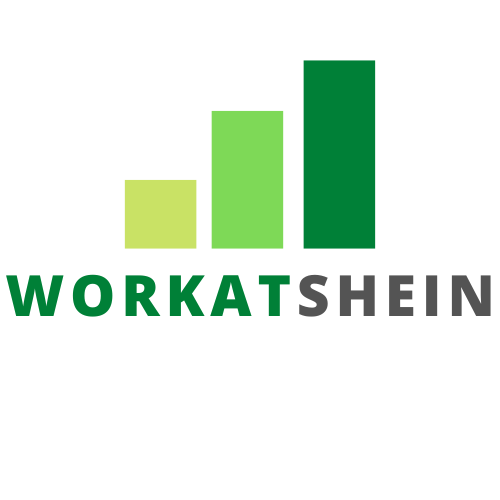According to a 2023 report by Upwork, 59 million Americans performed freelance work last year, representing 36% of the U.S. workforce. Globally, the remote work market is expected to grow at a compound annual growth rate (CAGR) of 15.5% from 2023 to 2030, driven by companies increasingly turning to flexible talent solutions. With over 70% of employers reporting difficulties in filling roles due to talent shortages, remote talent marketplaces have become a vital resource for bridging the gap between demand and supply of skilled professionals worldwide.
What is a Remote Talent Marketplace?
A remote talent marketplace is an online platform that connects companies with skilled professionals who work remotely, often from different parts of the world. Unlike traditional recruitment, which is usually localized or dependent on agencies, these marketplaces operate on a global scale, offering employers access to a vast pool of freelancers, contractors, and remote employees.
These platforms facilitate every stage of the hiring process, including talent discovery, vetting, contracting, project management, and payments. Examples include Upwork, Toptal, Fiverr, GrowTal, and specialized niche marketplaces focused on industries such as software development, design, marketing, or consulting.
Why Remote Talent Marketplaces Matter Today
Several major trends have converged to make remote talent marketplaces a key player in the future of work:
- Globalization of Work: The internet and cloud technologies have removed geographical barriers, making it easier to collaborate across time zones and borders. Companies no longer have to limit themselves to local talent pools.

- Rise of the Gig Economy: More professionals prefer freelance or contract work for the flexibility it offers. Remote talent marketplaces meet this demand by providing a steady flow of projects and clients.
- Cost Efficiency: Hiring remotely from regions with lower labor costs enables businesses to optimize their budgets without compromising quality.
- Access to Specialized Skills: For many companies, especially startups and SMEs, finding niche skills locally can be difficult. Remote marketplaces offer access to a broader talent pool with specialized expertise.
- Workforce Agility: Remote talent marketplaces allow companies to quickly scale their workforce up or down based on project needs, without the long-term commitment of traditional hiring.
How Remote Talent Marketplaces Work
The process typically follows several key steps:
- Job Posting or Talent Search: Companies either post a project or job listing detailing their requirements, budget, and deadlines, or they search proactively through talent profiles using filters such as skills, experience, hourly rate, and location.
- Candidate Vetting: Many marketplaces offer pre-vetted talent pools, where professionals have undergone tests, background checks, or portfolio reviews. This helps businesses shortlist candidates faster. Platforms like GrowTal specialize in connecting companies with thoroughly vetted freelancers, ensuring a high level of expertise and reliability.
- Hiring and Contracting: Once a suitable candidate is identified, the platform facilitates the contracting process, including terms of work, confidentiality agreements, and payment terms.
- Project Collaboration: Platforms often provide tools to manage projects, communicate with freelancers, track time, and share files — all in one place.
- Payment and Feedback: Payments are typically secured by the platform, ensuring timely compensation for freelancers and protection for clients. After project completion, both parties can leave reviews, building reputation within the community.
Benefits of Using Remote Talent Marketplaces
- Access to a Global Talent Pool
One of the most significant advantages of remote talent marketplaces is the sheer scale and diversity of professionals available. Whether you need a software developer proficient in the latest technology, a graphic designer with a unique style, or a digital marketing expert familiar with your target market, remote marketplaces give you access to talent from every corner of the world.
- Flexibility and Speed
Traditional hiring processes can be lengthy, involving multiple rounds of interviews, onboarding, and training. Remote marketplaces streamline this by enabling companies to hire quickly for specific tasks or projects.

This flexibility is crucial for startups and fast-growing companies that need to adapt swiftly.
- Cost Savings
Hiring full-time employees comes with added expenses like benefits, taxes, and office space. Remote talent marketplaces allow companies to hire freelancers on a project basis, paying only for the work done. This can significantly reduce overhead and increase financial efficiency.
- Quality and Accountability
Reputable marketplaces maintain strict vetting standards and facilitate client reviews, fostering accountability and high-quality output. Freelancers, in turn, are motivated to maintain good ratings to secure future work.
- Scalability
As business needs fluctuate, remote talent marketplaces enable scaling teams up or down without the logistical challenges of permanent hiring. Companies can build a lean core team supplemented by a dynamic network of external experts.
Challenges and Considerations
While remote talent marketplaces offer many benefits, businesses should be mindful of certain challenges:
- Communication and Time Zones: Managing remote teams across different time zones requires clear communication and coordination to avoid delays.
- Cultural Differences: Variations in work culture and expectations can impact collaboration; companies must foster inclusivity and clarity.
- Data Security: Sharing sensitive information with external contractors demands strict data protection measures and trust.
- Quality Variability: Despite vetting, the quality of freelancers can vary. It’s essential to start with small projects or trials to assess fit.
- Legal and Tax Implications: Hiring international freelancers involves navigating cross-border tax and legal regulations, which can be complex.
The Future of Remote Talent Marketplaces
Remote talent marketplaces are poised to become even more integral to business operations as digital transformation accelerates. Here are some emerging trends shaping the future:
- AI-Driven Matching: Advanced algorithms are improving how platforms match projects with the best-fit talent, saving time and improving outcomes.
- Niche and Industry-Specific Platforms: Specialized marketplaces focusing on particular industries or skill sets are gaining traction, offering curated pools of experts.
- Integrated Workflows: Marketplaces are integrating more tools for collaboration, performance tracking, and payments, creating seamless end-to-end solutions.
- Remote Talent as Part of Hybrid Models: Even companies with physical offices are increasingly blending remote freelance talent with in-house teams for greater agility.
- Focus on Upskilling: Platforms are partnering with educational providers to help freelancers upskill, ensuring access to cutting-edge talent.
Conclusion: Embracing the Remote Talent Marketplace Revolution
The remote talent marketplace concept represents a fundamental shift in how companies build and manage their workforce. By leveraging global talent pools, flexible hiring models, and technology-driven collaboration, businesses can innovate faster, reduce costs, and tap into skills that might be unavailable locally.
For professionals, these platforms offer unparalleled opportunities for flexibility, variety, and global work exposure. As technology and business models evolve, remote talent marketplaces will continue to grow in influence, driving a more connected, dynamic, and inclusive future of work.
In a world where agility and innovation are keys to success, embracing the remote talent marketplace is no longer just an option — it’s a strategic imperative.




